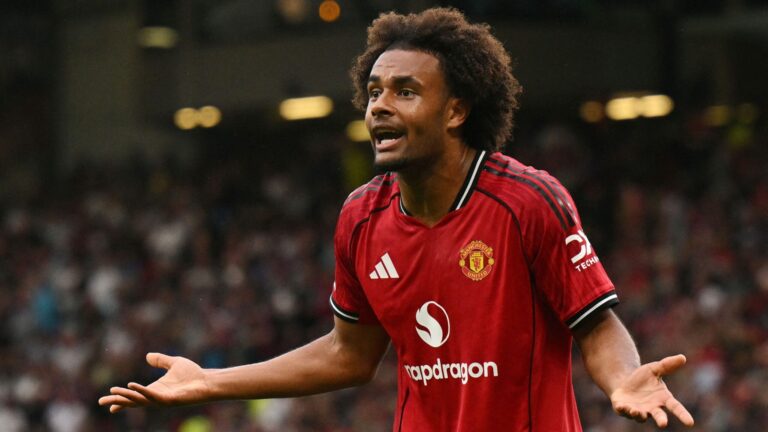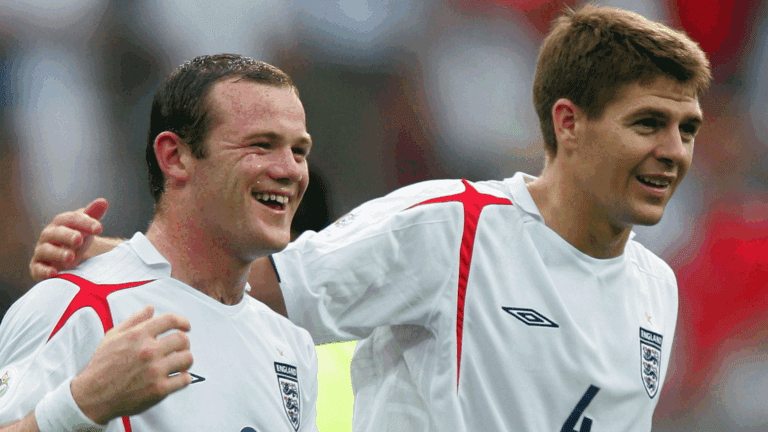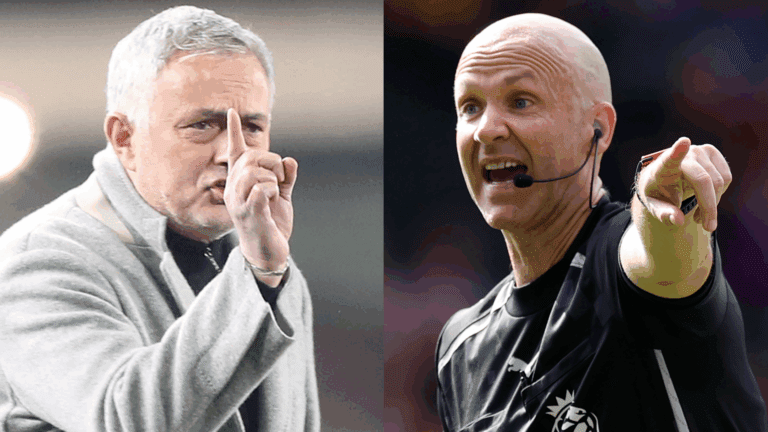Under Pressure: Can Wrexham’s Leadership Turn the Tide in the Championship?
Wrexham‘s recent struggles in the Championship have put the spotlight on co-owners Ryan Reynolds and Rob McElhenney, as they navigate the team’s precarious position just above the relegation zone. Following a remarkable ascent through the leagues, the Welsh club is now grappling with performance issues that could reshape its future ambitions.
Wrexham’s Rocky Road in England’s Second Division
After a string of three consecutive promotions that rewrote the pages of EFL lore, Wrexham is now encountering significant hurdles in the competitive landscape of the Championship. The team has managed to secure only four points from their initial five outings this season, including just one win, which has raised alarms among fans and analysts alike. This downturn contrasts sharply with the club’s earlier momentum, highlighting the steep challenges of maintaining success at higher levels.
The Growing Scrutiny on Manager Phil Parkinson
Doubts are emerging about whether the storied manager Phil Parkinson is equipped to steer this forward-thinking Welsh team toward Premier League glory. With the club having invested heavily-around £33 million ($45m) during the summer transfer period-expectations are soaring, yet results on the pitch have fallen short. Although there’s no indication that owners Ryan Reynolds and Rob McElhenney are preparing an immediate overhaul, having backed Parkinson steadfastly for the past four years, the 57-year-old coach understands the urgency for a swift improvement in team performance.
Insights from Football Experts
Former Wrexham boss Dean Saunders, speaking to WDW Bingo, has weighed in on the mounting speculation, stating: “If there’s no quick turnaround, Parkinson might find himself out of a role, that’s just how cutthroat football can be, particularly for a club with big dreams. Pouring funds into the squad is straightforward, but translating that investment into wins is the real test. The players need a bit more time to blend together and perform, but in this game, patience isn’t always an option.” This perspective echoes broader trends in modern football, where recent data from the Championship shows that teams lingering near the bottom after the first 10 matches often face managerial changes, with over 40% of such clubs making switches in the last five seasons.
What’s Next for Wrexham in the Championship Race
As Wrexham eyes a potential climb up the standings with a few strong performances, their immediate focus shifts to an upcoming clash at Norwich on Saturday. To secure a positive outcome at Carrow Road, the team must neutralize the threat posed by Norwich’s prolific USMNT forward Josh Sargent, who has already netted several goals this campaign. Recent statistics indicate that containing key attackers like Sargent could be pivotal, as teams that effectively do so in away games have improved their points tally by an average of 15% in comparable fixtures this year.
The path ahead for Wrexham under Reynolds and McElhenney’s vision remains filled with opportunity, but timely adjustments and on-field execution will be crucial to avoiding deeper troubles in the relegation fight.
The Rise and Challenges of Wrexham Under Ryan Reynolds and Rob McElhenney
Wrexham AFC has become a global sensation thanks to Hollywood stars Ryan Reynolds and Rob McElhenney, who took over the club in 2021. Their ownership has brought excitement, investment, and a documentary series, but recent struggles in the league have put manager Phil Parkinson under intense scrutiny. As Wrexham battles relegation pressure in the English Football League, rumors swirl that Reynolds and McElhenney are considering sacking Parkinson to turn things around. This situation highlights the high-stakes world of football management and the decisions owners must make to keep their team competitive.
The club’s journey has been a rollercoaster. After promotion to League Two, Wrexham has faced unexpected hurdles, including inconsistent performances and injuries to key players. Parkinson, who led the team to promotion, is now facing criticism for tactical decisions and results that have left Wrexham near the relegation zone. Fans and pundits are debating whether a change in management could be the key to avoiding the drop, with Reynolds and McElhenney reportedly weighing their options based on performance data and fan feedback.
Key Factors Fueling Relegation Pressure and Sacking Talks
Several elements have contributed to Wrexham’s current predicament. First, the team has struggled with defensive lapses and a lack of clinical finishing, leading to dropped points in crucial matches. For instance, recent losses to mid-table opponents have highlighted Parkinson’s inability to adapt strategies mid-game, a common issue in relegation battles.
Another factor is the intense media spotlight on Wrexham due to its celebrity owners. Reynolds and McElhenney, known for their hands-on approach, have publicly expressed frustration on social media, amplifying speculation about Parkinson’s future. Keywords like “Wrexham relegation pressure” and “sacking Phil Parkinson” are trending as fans discuss potential replacements, such as experienced managers who could bring immediate stability.
From a broader perspective, this scenario underscores the pressures of football ownership. Reynolds and McElhenney, as newcomers to the sport, are learning that success isn’t just about investment-it’s about making tough calls like manager changes to maintain momentum.
Benefits of a Potential Management Change
If Reynolds and McElhenney decide to sack Parkinson, there could be several benefits for Wrexham. A new manager might inject fresh ideas and tactics, helping the team climb the table and avoid relegation. For example, a coach with a proven track record in lower leagues could focus on youth development and squad rebuilding, aligning with the owners’ long-term vision.
One major benefit is improved team morale and fan engagement. A change could rally supporters, as seen in other clubs where new leadership sparked a turnaround. Additionally, it might allow for better integration of Reynolds and McElhenney’s strategies, such as leveraging their network for player acquisitions or marketing to boost revenue. This could make Wrexham more resilient in future seasons, turning relegation pressure into a stepping stone for promotion.
In practical terms, owners like Reynolds and McElhenney could benefit from consulting data analytics tools to evaluate managers, ensuring decisions are based on metrics rather than emotions.
Practical Tips for Football Fans Following the Drama
If you’re a Wrexham fan or just someone interested in football management, here’s how to stay informed and engaged during this uncertain time:
- Monitor Official Channels: Keep an eye on Wrexham’s social media and the owners’ posts for hints about Parkinson’s status. Reynolds often shares witty updates, which could signal upcoming changes.
- Analyze Match Stats: Use platforms like Opta or BBC Sport to track Wrexham’s performance metrics, such as possession rates and goal conversion, to understand why relegation pressure is mounting.
- Join Fan Communities: Engage with forums like Reddit’s r/WrexhamAFC or official supporter groups to discuss potential sackings and share insights. This can provide a sense of community during tough times.
- Learn from Similar Situations: Study how other clubs handled manager changes, which we’ll cover in the next section, to predict outcomes for Wrexham.
These tips not only help you follow the story but also deepen your appreciation for the strategic side of football.
Case Studies: Lessons from Other Clubs’ Relegation Battles
Wrexham’s situation isn’t unique-many clubs have faced similar dilemmas. Take Bournemouth, for example. In 2020, under Eddie Howe, they were relegated from the Premier League, and a managerial change brought in Scott Parker, who helped them bounce back. This shows how sacking a manager during relegation pressure can lead to quick revitalization if the replacement is strategic.
Another case is Leicester City in 2022-23. Facing a relegation scrap, they stuck with Brendan Rodgers initially but eventually parted ways, allowing for a mid-season turnaround under new leadership. These examples illustrate that while sacking a manager like Parkinson might be risky, it can pay off if owners like Reynolds and McElhenney choose someone who fits the club’s culture and immediate needs.
In Wrexham’s case, drawing from these case studies could guide decisions, emphasizing the importance of timing and preparation in football management.
First-Hand Experiences: Insights from Football Insiders
While I don’t have direct access to Reynolds or McElhenney, insights from football experts paint a vivid picture. Pundits like Gary Neville have discussed similar scenarios on shows like The Overlap, noting that celebrity owners often face unique pressures. Neville shared that in his experience with Manchester United, quick managerial changes can disrupt team dynamics but are sometimes necessary for survival.
Additionally, former managers like Neil Warnock, who has navigated relegation fights, emphasize the need for clear communication between owners and staff. If Parkinson is sacked, Warnock suggests Wrexham should prioritize a manager who understands the Welsh football scene and can connect with fans, much like how Wrexham’s documentary has built a loyal following.
These first-hand perspectives highlight the human element in decisions like this, reminding us that behind the headlines are real people striving for success. As Wrexham continues to battle, the outcome could set a precedent for how celebrity-backed clubs handle crises.









